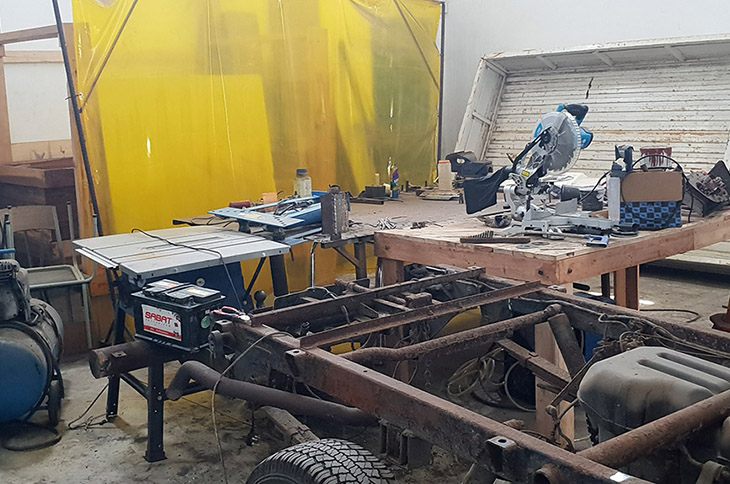The following articles and statements are provided for public information and copyright vests in the Development Bank of Namibia. For permission to use these items verbatim, or as excerpts, or for photographic permissions, please contact the Corporate Communications and Stakeholder Relationships Specialist on 061 290 8000.

Development Bank of Namibia finance for young Erongo welder. Muudighu Investments has opened its workshop and begun operating with the help of Development Bank’s skills-based finance for young artisans.
The Development Bank of Namibia (DBN) facility for skills-based finance has provided finance to Muudhigu Investments CC. The company, operated by young artisan, Ndeenda Mbungu, offers welding services in Walvis Bay, Swakopmund and Arandis. Services include metal fabrication, pipe welding, tube brazing, cast iron welding and sheet metal welding.
Find out about finance for young artisans, here...
Aged 28 at the time of application, Mbungu satisfied the requirements for young artisan finance with an NQF3-level certificate in metal fabrication from Okakarara Vocational Training Centre, as well as the necessary experience in full time employment prior to starting his own business.
He uses outsourced accounting services to assist him with management. In addition to his own employment in the company, his permanent workforce consists of a welder, a handyman and a general worker. Mbungu expects to employ temporary employees on a needs-basis as his business grows.
Mbungu and Muudhigu Investments represent the ideal borrower on many levels, says Jerome Mutumba, DBN Executive for Marketing and Corporate Communication.
There is a perception, Mutumba says, that an effective enterprise requires large amounts of capital at start-up. However, Muudhigu shows that with grit, determination and innovation, a business can be established with lean capital structures. In the case of youth enterprise, although expectations are often high, the reality is that larger loans often impose a significant debt burden on the young.
The high repayment can have the unintended effect of reducing profits to the enterprise and owner, which actually restricts financial growth and enterprise savings, counter to the intent and best-interest of the borrower.
In Muudhigu’s case, he continues, borrowing less and rationalising on assets and working capital has placed Mbungu in a better position to approach the future as his monthly repayments are lower.
On the topic of the enterprise environment, Mutumba says that Walvis Bay is a hub for industrialisation. Providing an artisanal skill such as welding enables multiple enterprises to make use of the skill. He notes that at the expert level that Mbungu has attained through certification and experience, various companies that might have competed to hire Mbungu can now share his expertise by contracting Muudhigu Investments.
Talking about the rationale behind the skills-based facilities for artisans and professionals, Mutumba emphasises that although Namibia needs to develop enterprise now, it also has to consider the future of economic activity.
Investments in youth and their empowerment as entrepreneurs are one of the best ways in which we can express our hope to expect more from the future, he concludes.



